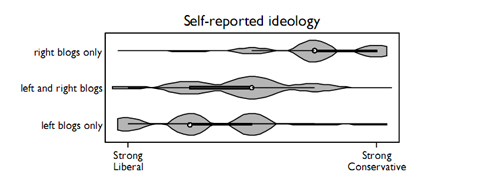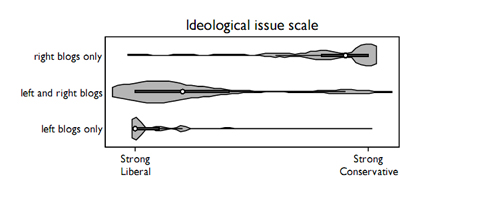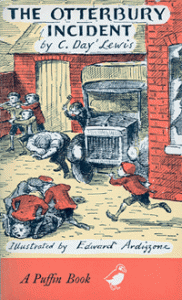Andrew Sullivan links to a New Scientist story suggesting that they do.
However, there are some trends to be seen in the data. Those states that do consume the most porn tend to be more conservative and religious than states with lower levels of consumption, the study finds. … Eight of the top 10 pornography consuming states gave their electoral votes to John McCain in last year’s presidential election – Florida and Hawaii were the exceptions. While six out of the lowest 10 favoured Barack Obama.
But if you look at the actual study (PDF), not so much.
bq. The fourth column reports that in regions where more people report regularly attending religious services (per National Election Studies 2004), overall subscription rates are not statistically significantly different from subscriptions elsewhere (p 0.848).
bq. … Furthermore, I found no significant relationship between subscriptions to this adult entertainment service and presidential voting in 2004, based on poll data by congressional district. However, using individual-level data from a Hitwise sample of ten million anonymized U.S. Internet users, Tancer (2008), finds that adult escort sites are more popular in blue states that voted for Gore in 2004, while visitors from the red states that voted for Bush in 2004 are more likely to visit wife-swapping sites, adult webcams, and sites about voyeurism.
What evidence there is in the paper of a relationship between religious faith and porn consumption seems, as best as I can interpret the relevant table, to be based on a simple OLS regression with no reported control variables. Nor does there seem to be _any_ discussion in the piece of correlations between porn consumption and voting patterns in the most recent presidential election.
I’m not sure whether to blame the New Scientist or the paper’s author, who perhaps seems (if quoted fairly and accurately, which is of course by no means certain – he could have made a few vague handwaves that were taken completely out of context) to have hammed up his results a bit in the interview. But even if there _were_ strong results, they wouldn’t necessarily tell us much. The data is all aggregated at the state or zipcode level, but the decision to purchase or not purchase porn online is obviously an individual one. There are _all sorts_ of obvious ecological problems in drawing inferences about religious people’s individual propensities from aggregate data. This is directly analogous to Heritage horseflop claiming that because rich states tend to support Democrats, therefore the Democrats are the party of the rich. As Gelman, Park et al. showed, that inference was directly misleading. Similarly, even if people in more religious or Republican states _were_ more inclined to purchase porn online, this doesn’t imply that religious _people_ or _individual_ Republicans were more inclined to purchase porn online, and I can think of at least two or three plausible alternative causal mechanisms that would explain the observed correlation.




 (the original Ardizzone illustrations are all inside though and
(the original Ardizzone illustrations are all inside though and 